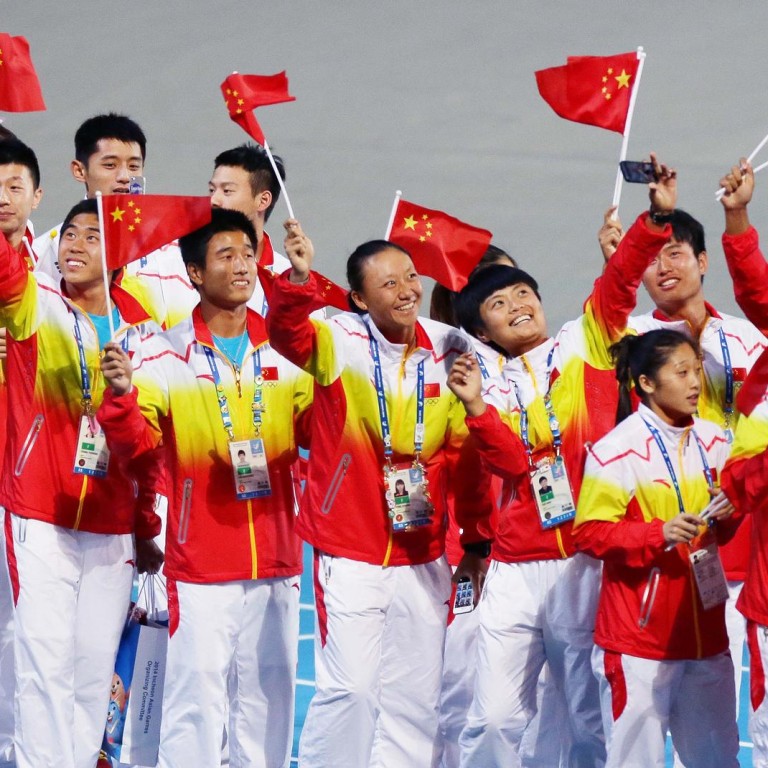
China comes out on top in Asian Games with 151 gold medals
The Asian Games ended in Incheon, South Korea, with China just managing to pass 150 gold medals.
The Asian Games ended in Incheon, South Korea, yesterday with China just managing to pass 150 gold medals.

While China remains Asia's sporting superpower, it has seen its dominance reduced. It won 199 gold medals at the last Games in Guangzhou and Incheon is its worst show since the Games were last in South Korea in 2002.
Despite sending a record 472 athletes to Incheon, Hong Kong returned home with fewer gold and silver medals compared with the 2010 Guangzhou Games, when it captured eight gold, 15 silver and 17 bronze medals.
Delegation head Karl Kwok Chi-leung, however, said he was satisfied, as Hong Kong came 13th out of the 37 states and territories that won medals.
"We have the biggest squad this time but many of them come from team sports, where medals are harder to win at this high level," Kwok said. "Some of our strongholds such as snooker were not on the medals programme in Incheon.
"All in all, I would say it is not a bad result. Sporting achievements always have to do with the size of the population and we are a small city … which means we will not be able to identify as many sporting talent as [other] countries can. The overall results have proved our athletes are making progress."
The six gold medals came from cycling (two), windsurfing (two), rowing and gymnastics.
"Our cyclists remain strong, with the two gold medals from [Sarah] Lee Wai-sze, while our windsurfing is always highly competitive," Kwok said.
"The gymnastics gold medal won by Shek Wai-hung in the men's vault is the most surprising and exciting one, as he beat a very strong field, including the reigning Olympic and world champion.
"Also, rowing coach Chris Perry has been in Hong Kong for almost 30 years and he was finally able to witness his charge Lok Kwan-hoi capture a gold medal. All these were exciting moments in the Incheon Games."
Of the 15 elite sports representing the Sports Institute in Incheon, only triathlon failed to win a medal, and according to the latest selection criteria they will face the axe from the programme in March.
"This is a very cold and mechanical system, with results the only consideration for funding support," said Kwok, who is also a member of the Sports Institute board. "But we also have to be accountable as we are using public money and there must be an open and objective mechanism to allocate the funding.
"The funding review is done every two years and we will have to wait."
While a lot of hard work and effort are required to win a medal at the Asian Games, the rewards are considerable. Medal winners will share HK$9.1 million from the Hang Seng Athletes Incentive Scheme. They can also enjoy elite training grants of up to HK$28,000 a month each for the next four years.
Olympic Council of Asia president Sheikh Ahmad al-Fahad al-Sabah cast aside controversies over what Muslim women should wear at the event to declare the Games a success.
The next Asian Games will be in Jakarta in 2018.

